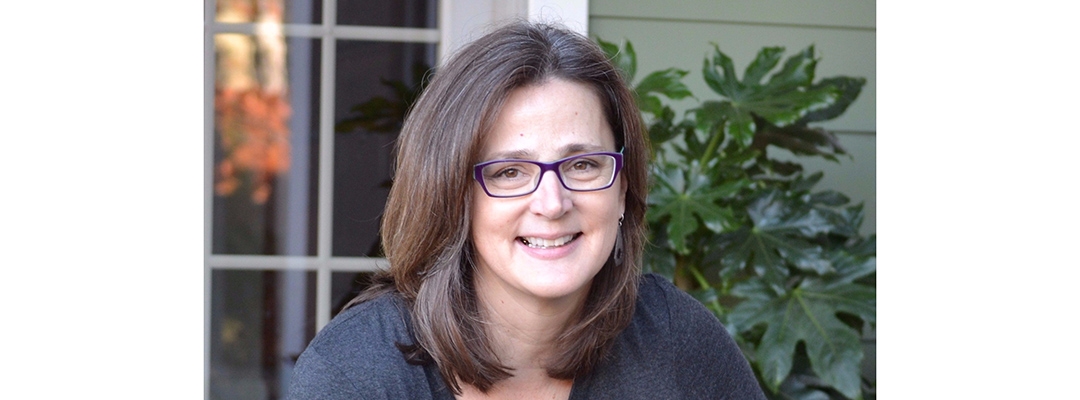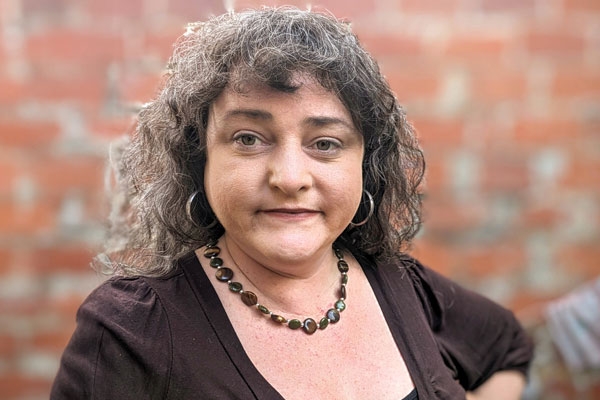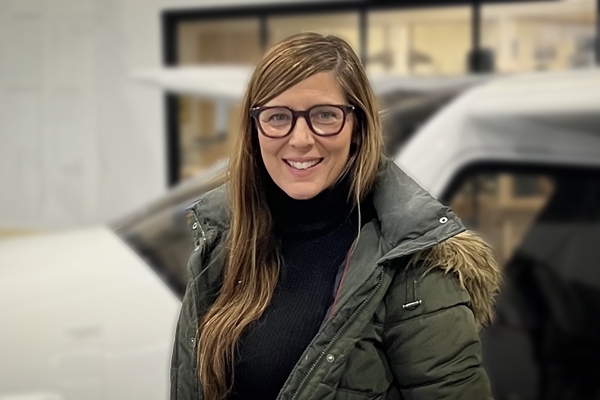North Carolina–based Elizabeth Bobst is more of a “rule-fudger than a rule-follower.”
A longtime educator—from middle- and high-school English teacher, to college admissions reader, to community college instructor, to her current work teaching English to Speakers of Other Languages (ESOL)—Elizabeth has spent a lot of time working with the English language and English literature. But it was during her time as an ESOL instructor in the U.S., China and Morocco that she realized her own grammar skills weren’t up to her teaching standards.
“In American classrooms with native English speakers, formal grammar teaching often takes on a smaller role,” explains Elizabeth. “ESOL teaching is much more focused on the structure of the English language. As an ESOL teacher, I found myself needing grammar and editing skills I just didn’t feel like I had.”
The teacher needed to become the student.
Learning More Than Just Commas
But why would a teacher in North Carolina enroll in a program in California? When Elizabeth started the Professional Sequence in Editing in September 2014 (she completed it in December 2016), she wanted more than just a credential—she wanted more tools in her teaching “toolbox.” And our program, which can be completed entirely online within a relatively short period of time, would be the best place to gain those tools.
“I chose the Professional Sequence in Editing for several reasons,” Elizabeth says. “First, the program seemed carefully and thoughtfully designed, and the courses were delivered by instructors with experience in editing and teaching. Second, I felt confident in UC Berkeley’s academic reputation. And third, I knew I was going to be juggling work—and my homelife, including busy teenagers—while I completed the coursework. I wanted a program that wouldn’t overwhelm me. As it turned out, I did have to drop a course due to a family crisis, but it was easy to get back on track the following semester.
“The program’s coursework proved challenging, demanding and always interesting,” continues Elizabeth. “The cumulative experience of the editing classes had a tremendous impact on me. I learned two lessons that have helped shape my work choices moving forward:
1. I don’t have what it takes to be a truly excellent editor. I don’t fret over the details. I don’t find joy in the order.
2. But, I did gain a newfound confidence in myself as an editor. I might not have mastered every comma or capitalization rule, but I know where to find the answers and I understand the editing process.”
Rounding Out Her Skillset, Building Confidence
Elizabeth plans on incorporating her newfound editing skills into her ESOL teaching career. “The program provided a strong review of grammar and it helped me hone in on certain grammar skills that I also want my students to master,” she explains. “I know this sequence strengthened my writing skills and made me a more effective teacher.”
And she’s parlaying these new skills into advancing her own career—writing within the realm of academia.
“The Professional Sequence in Editing gave me a new set of skills that I can use in a wide variety of ways.”
“The program helped me see the benefit of substantive editing, as well as the challenges of it, in my own writing,” Elizabeth says. “My writing is more precise now that I’ve completed the Editing sequence. I am also more aware of the structure of my writing as I’m going through the writing process. Overall, I am more confident both in teaching writing and in my own writing.”
That editorial confidence was displayed when Elizabeth was asked to collaborate on a book with Mary Ann Wolf, whom Elizabeth calls an extraordinary leader in education in North Carolina. Wolf is known for her work with K–12 principals around the country and for developing a framework for bringing about school change. According to the Friday Institute website bio for Wolf, when she was the Executive Director of the State Educational Technology Directors Association (SETDA), Wolf “worked with educators in all 50 states and with policy makers to share data and models of how to improve education to ensure America’s and our students’ competitiveness in the global economy.”
“Mary Ann wanted to write a book based on this framework for school leaders, and she asked me to collaborate with her on the writing,” says Elizabeth. “She and I developed a work process where we both wrote content—later bringing Nancy Mangum onboard to add a great deal of content expertise—and edited each other’s writing as we went along. The skills I learned in the editing courses helped me keep the shape of the book in mind as we wrote.
“And because while I was writing I had also been focused on editing, the formal editing stage with publisher Harvard Education Press went very smoothly,” recalls Elizabeth. “The professional sequence also gave me the confidence to fully participate in the editorial process. I asked more questions and pushed back on more editorial suggestions than I would have had I not taken the courses. Our book, Leading Personalized and Digital Learning: A Framework for Implementing School Change, was published in October 2017.”
Finding the Right Fit
Elizabeth is using her editing skills for more than just book writing and teaching. Since settling in the Chapel Hill area in 2003, Elizabeth has brought community-based services into her fold. She currently works as the family literacy coordinator for nonprofit Orange Literacy in Carrboro, N.C., and also writes grants to raise funds for its programs.
“The knowledge and skills I gained during the Professional Sequence in Editing has proven invaluable in this kind of writing,” Elizabeth says. “I am precise, I comply with word counts and I have confidence that my work is technically strong. I am a much better editor of my own writing than I was before I began the Editing sequence, and I feel confident editing the work of others.”
Elizabeth also freelances for local organizations and companies, including editing for the Friday Institute for Educational Innovation at NC State University, and editing and working on instructional design for NewGen Enterprise, a solutions provider in e-learning, digital marketing and language services.
“Because of the skills I learned in the sequence, and because I now have an editing certification, I’ve found several freelance jobs that have been challenging and fun,” she says. “I’ve learned that while editing always requires precision and attention to detail, no two projects are ever the same. There is always something to learn through every editing and writing project I’ve undertaken. The Professional Sequence in Editing gave me a new set of skills that I can use in a wide variety of ways.”
How would you parlay new editing skills? Tell us in the comments!



